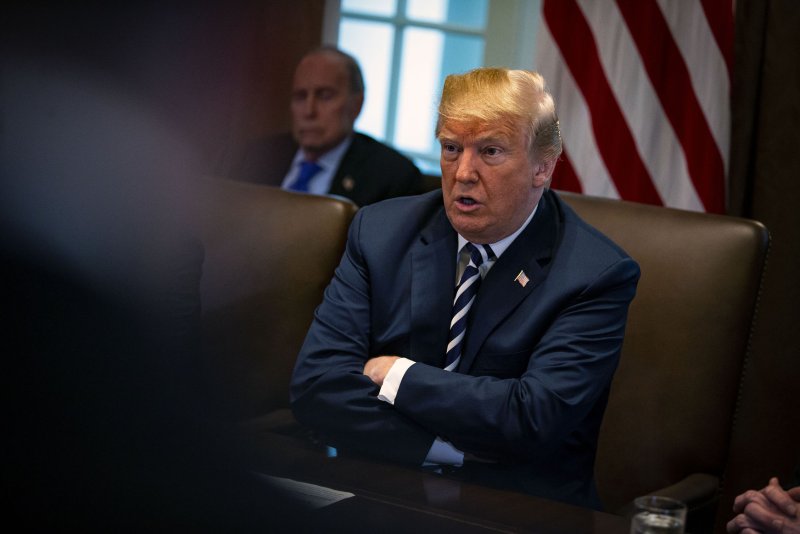Even though U.S. President Donald Trump has vowed tougher actions on Iran, though the language of sanctions legislation could include a relief valve, a market analyst said. Photo by Al Drago/UPI |
License Photo
May 10 (UPI) -- Though as much as 1 million barrels per day could be limited with the U.S. pullout of the Iranian deal, there could be some wiggle room, analysis found.
White House spokeswoman Sarah Sanders told reporters that Iran now faces "enormous" sanctions pressure with the United States stepping out of the Joint Comprehensive Plan of Action, a multilateral nuclear agreement that gave relief to Iran in exchange for peaceful commitments.
"All of the sanctions that were in place before the deal are back in place, and we are preparing to add additional sanctions that may come as early as next week," she advised.
U.S. President Donald Trump had until May 12 to issue a waiver on oil-related sanctions or move against the principles of the JCPOA. In an update on its sanctions actions on Iran, the U.S. Treasury Department said countries that want extraordinary considerations should cut back on oil purchases from Iran over the next six months.
Analysis from commodity pricing group S&P Global Platts said the immediate impact of Trump's decision Tuesday would translate to less than 200,000 barrels of oil per day and less than 500,000 barrels per day after the 180-day wind down period. Eventually, as much as 1 million barrels per day could be on the line in a global energy market with little spare capacity.
Paul Sheldon, an associate director at Platts Analytics, said enforcing compliance with Trump's unilateral sanctions move is much more difficult than previous multilateral sanctions, however.
"This could test the Trump administration's appetite for sanctioning foreign companies, and the term 'significant' in the sanctions legislation potentially leaves some wiggle room which could be used to avoid a trade dispute," he said in a report emailed to UPI.
Saudi Arabia this week said it would ensure market stability should there be any disruptions. On Wednesday, the International Energy Agency said it estimates Iran is the fifth-largest exporter and sanctions could have drastic implications on market balance. The IEA "stands ready to act" to ensure markets supplies are adequate. That action, ironically, could include a call on the United States to release oil from its strategic reserves, as it did in response to civil conflict in Libya in 2011.
European leaders voiced their opposition to Trump's decision. Since Iranian doors were opened with the JCPOA, French energy company Total was among the first to move back into the Iranian energy sector. French government officials have said they regret Trump's move.
The price for Brent crude oil, the global benchmark, is up more than 1.6 percent, or $1.62 per barrel, since Trump's decision on the JCPOA.















